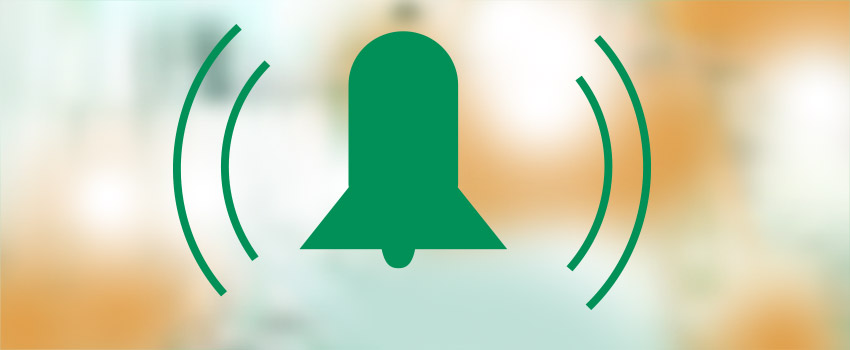In this section we repeated alert notices from the RASFF system of the European commission issued in the previous month, which we thought to be noteworthy and of interest to our clients.
In the meantime you may have recognized, that the monthly listing became longer and longer. A repetition in AGROLAB RADAR binds meanwhile many hours, so we decided to stop excerpting this information. In addition the alerts did not differ very much from month to month. The typical threats were also deriving from the known countries. Nuts, raisins and dried fruit with mycotoxin contamination from South of Europe and Middle East countries & USA, salmonella in chicken breast from South America, Poland, and numerous spices and seeds with salmonella, and always often a too high sulfite content in dried fruit from Turkey etc.
You can analyze the RASFF-site conveniently by yourself using several filter options and limit the notification to those which are of direct interest to your business.
We from AGROLABGROUP will screen the RASFF listing week by week also in future. From now on we will select and focus only a few really surprising or challenging findings in our opinion, that we will present in this section.
Last month we found the following serious alerts noteworthy:
- 3-MCPD and Glycidylesters: 3-MCPD (5138 µg/kg) in refined palm oil from Germany; glycidyl esters (40600 µg/kg) in evening primrose oil from China; 3-MCPD) (2926 µg/kg) in cocoa wafers from Turkey, via Germany
- Allergens: peanut (>200 mg/kg) undeclared on dried fruit confectionery with walnuts from Turkey
- Antibiotics: residue level above MRL for tulathromycin (3350 µg/kg) in cow carcasses from France
- Cyanide: too high content of cyanide (87.8 /100g) in food supplement from Slovakia
- Ethylene oxide1): 51 alerts in January for sesame seeds from India and various products containing sesame seeds from all over Europe and neighboring countries
- Heavy metals: cadmium (2.42 mg/kg) in frozen squids (Uroteuthis duvaucelii) from Thailand; high content of aluminium ( 3792 mg/kg) in food supplement containing diatomaceous earth from the Czech Republic, with raw material from Belgium; arsenic (13 mg/kg) in organic algae food supplement from Germany
- Hepatitis A virus: presence /25g in dried tomatoes from Turkey
- Histamine: 500 and 900 mg/kg in tuna from India; 425 mg/kg in chilled tuna loins (Thunnus albacares) from the Maldives
- Listeria monocytogenes: serotype 1/2a or 3a /25g in frozen blanched sweet maize kernels from Hungary
- Mycotoxins: aflatoxins (B1 = 3.0 / B1 = 3.1 / B1 = 2.2 µg/kg) in white rice from Pakistan; aflatoxins (B1 = 3.1 µg/kg) in basmati rice from Pakistan; ochratoxin A (11.2 µg/kg) in organic basmati rice from Pakistan; aflatoxins (B1 = 6.3; Tot. = 7.4) in peanut butter from India
- Preservatives: too high content of E 211 - sodium benzoate (625 mg/kg) in figs jam from Egypt
- Pyrrolizidine alkaloids: 2 mg/kg in ground cumin from the Netherlands
- Salmonella: presence /25g in frozen parsley from Belgium; foodborne outbreak suspected to be caused by Salmonella Typhimurium monophasic (presence /25g) in salami from Italy; Salmonella enterica ser. Liverpool (in 1 out of 5 samples /25g) in sesame seeds from Uganda; presence /25g in organic sesame seeds from Turkey
- Sulphite: 100 mg/kg undeclared on figs jam from Egypt; 14.8 mg/kg undeclared on hard sweets from Ukraine; 15 mg/kg undeclared on sundried tomatoes from Turkey
- Tetrahydrocannabinol (THC): 1500 mg/kg in organic CBD hemp oil from Austria
- Tropane alkaloids: atropine (23; 35 µg/kg) and scopolamine (1.2; 1.9 µg/kg) in popcorn maize from Spain
- Vitamins: high content of vitamin A (3000 µg/day) in food supplement offered online for sale
1) Ethylene oxide: Reinforced import controls for sesame seeds from India because of new Implementing Regulation (EU) 2020/1540 amending the Implementing Regulation (EU) 2019/1793 as regards sesamum seeds originating in India. The Regulation was published on 22.10.2020 and entered into force on 26.10.2020. The Regulation (EU) 2020/1540 introduces, in addition to the already existing control frequency of 20% of sesame seeds for salmonella, a control frequency of 50% of sesame seeds for pesticide residues. In addition to pesticide residues (analysed by the usual multi-methods), the Regulation also explicitly provides for the analysis for ethylene oxide (the sum of ethylene oxide and 2-chloroethanol, expressed as ethylene oxide).
Link:
Author: Dr. Katja Fuchs

 Contact
Contact

 Contact
Contact Career
Career